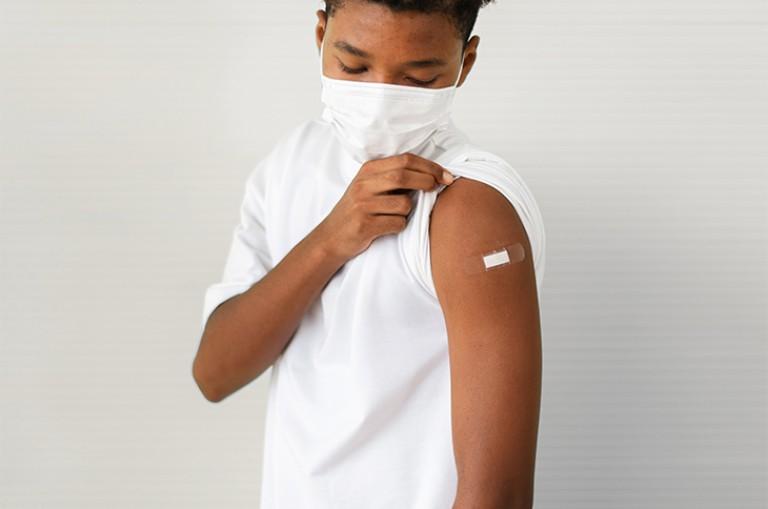Why COVID-19 Boosters and Masking Remain Vital
As health experts brace for a potential COVID-19 surge this fall and winter, Dr. Carol Epling shares insights on how to stay safe.
Investigational Mucosal COVID Vaccine Protects Against Disease and Transmission
Hamster study found that a COVID vaccine designed to be taken as a pill results in neutralization of the SARS-CoV-2 virus in mucosal tissues
New Evidence Shows How COVID Can Hijack Human Kidney Cells
Duke researchers have shown that SARS-CoV-2 can infect kidney cells via multiple binding sites and use the cell’s machinery to replicate, causing injury and kidney disease. The discovery helps explain why acute kidney injury is one of the main complications observed in patients with severe COVID.
Vaccines & Countermeasures: Learning from COVID-19 and Planning for the Future
Duke in DC and Duke Health Government Relations convened a group of Duke experts to brief federal policymakers on the importance of federal investment in research, the impacts from their work, and additional recommendations to bolster our nation’s public health, medical preparedness, and response systems
Study Shows mRNA Vaccine Technology Can Be Used For HIV Vaccines
Researchers at the Duke Human Vaccine Institute have demonstrated a successful way to deliver a potential HIV vaccine using mRNA technology, like that in the COVID-19 vaccines.
Universal Masking in Schools is Shown to Reduce Spread of COVID-19
According to a study by the ABC Science Collaborative, school districts that required masking saw lower rates of COVID-19 transmission within schools last fall compared to those with optional masking policies.
The Mystery of Long COVID: Brain Fog, Fatigue, Even Sexual Dysfunction
Two Duke pulmonologists speak with the media about symptoms, treatments and what remains unknown about long COVID.
Incidence of COVID-19 was 8 Times Higher in Unvaccinated vs. Vaccinated Students
Unvaccinated students had eight times the incidence of COVID-19 infection compared to vaccinated students in a North Carolina independent school, according to a study by the ABC Science Collaborative appearing online Feb. 22 in the journal Pediatrics.
Study Will Test Higher Dose of Ivermectin to Treat Mild-to-Moderate COVID-19
A study led by the Duke Clinical Research Institute (DCRI) in partnership with Vanderbilt University has expanded its testing platform to evaluate ivermectin at a higher dose for a longer period of time.
Omicron Antibodies Persist 6 Months after Moderna Vaccine Boost But Are 6 Times Lower
A booster dose of Moderna’s COVID-19 vaccine showed signs of waning antibody levels against the Omicron variant after six months, but the antibodies still remained effective against the variant in laboratory tests, according to a Jan. 26 study in the New England Journal of Medicine.









